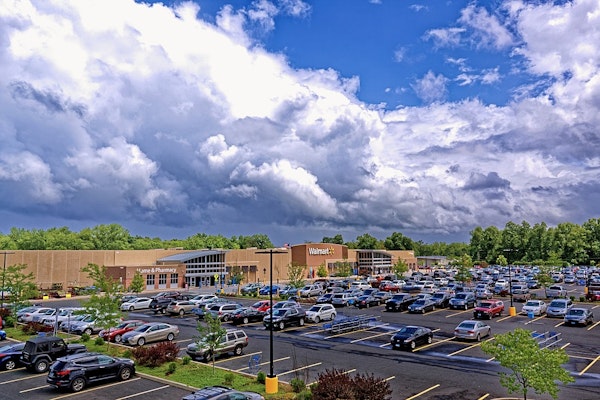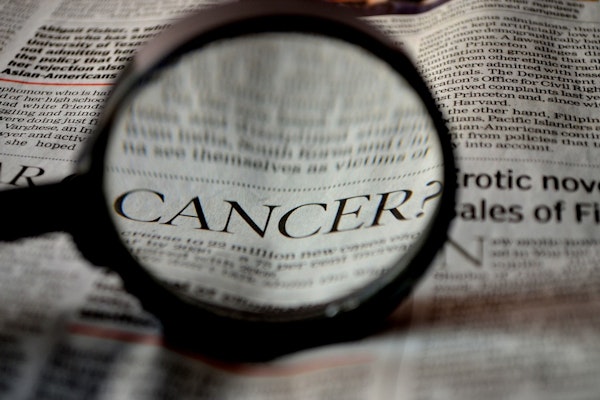
Mandatory Professional Liability For Police Officers: How Insurance Can Step Up
As the entire world scrutinizes the American justice system and police involvement in the deaths of unarmed black men and women, the insurance industry is in a unique place to exercise a market-based solution: Mandatory professional liability insurance for police officers.
July 22, 2020
Legislation & Regulation
Liability

Preparing For COVID-19 Biometric Litigation
In the last few years, Arkansas, California, Illinois, New York, Texas and Washington have all enacted legislation that impacts how businesses can use an individual’s biometric data. Because of the COVID-19 pandemic, businesses will face critical questions on how best to handle this data as they begin to re-open.
July 21, 2020
Liability
Litigation

Non-Profit EPL Exposure Likely To Increase During Pandemic
The coronavirus (COVID-19) pandemic has had a significant impact on the non-profit sector. Many have had to either dramatically reduce, change, or completely shut their organizations down in adherence of state public health mandates.
July 21, 2020
Liability

Good Faith, Bad Food: Assessing Liability When Food Donations Lead To Illness
Food donations provide not only vital opportunities to combat food insecurity, but also valued tax deductions for contributions to qualified agencies. But what if donated foods become an immediate cause of a nationwide product recall or associated food-borne outbreak?
July 21, 2020
Liability

Coverage Triggers For Construction Defect Claims
This is the first in a series of articles dealing with construction defect claim fundamentals. In it, we address the trigger of coverage in construction defect claims.
July 16, 2020
Education & Training
Liability

After Tort Claims Payout Of $220M, NY Bill Proposes Mandatory Police Liability Insurance
Doctors are required to have insurance if they want to practice medicine. Some states require attorneys have malpractice insurance if they want to practice law. If New York State Legislature passes new legislation, cops will also have to take out insurance if they plan to wear a badge.
July 14, 2020
Legislation & Regulation
Liability
New York

Harvey Weinstein Accusers Fear Insurers Could Be Shielded From Big Payouts
Several women who claim they were sexually abused by disgraced film producer Harvey Weinstein are pleading with a US judge to reject an $18.9 million settlement with the former entertainment mogul, fearing that the deal would prevent the defendants’ insurers from making bigger payouts.
July 14, 2020
Excess & Surplus Lines
Liability
Litigation
New York

D&O Coverage Costs Increase With Lawsuits Against Cannabis Companies
Some of the biggest cannabis companies, including Medmen Enterprises, Canopy Growth, CannTrust Holdings, Aphria Inc and Columbia Care, have faced shareholder litigation, accusing leaders of false claims, failing to act in the interest of all shareholders and attempts to defraud investors.
July 9, 2020
Liability
Litigation

SpaceX Is Ushering In The Era Of Space Commercialization As Insurers Prepare For Takeoff
The scenes from May 30 looked like they had been plucked out of the 1960s. News networks alternated between covering nationwide protests over the death of George Floyd, a black man who was allegedly killed by a police officer while in custody, and SpaceX’s first crewed launch to the international space station.
June 30, 2020
Excess & Surplus Lines
Liability
Workers' Compensation

Walmart’s COVID-19 Problem
COVID-19 has infiltrated nearly every corner of our lives since reaching pandemic proportion. It was only a matter of time until it would surface in the legal world.
June 29, 2020
Liability
Litigation
Illinois

Montrose: Gift That Keeps On Giving
On Jan. 7, 2020, the California Supreme Court heard oral arguments in Montrose v. Superior Court, 14 Cal App. 5th 1306, 2017. The issue in the underlying continuous environmental contamination damage claim is whether the upper excess layer of coverage should participate in funding only after all directly underlying excess coverage during the coverage continuum exhausts.
June 29, 2020
Education & Training
Liability
Litigation
California

Fatal Crashes Up: Lockdowns Put the Brakes On Traffic, But Not Speeders
Coronavirus lockdowns led to huge reductions in traffic and fewer car crashes this spring, but as drivers sped up on quieter roads, the collisions became deadlier in several cities, a Reuters analysis shows.
June 26, 2020
Auto
Liability

Why Waivers Won’t Necessarily Protect Clients From COVID-19 Liability
Waivers of liability for disease transmission might protect commercial clients from lawsuits, but the industry will not know for sure until one is tested in an appeal court, a litigation defence lawyer suggests.
June 24, 2020
Liability
Litigation

Ex-MLB Player Carl Crawford Sued Over Boy’s Drowning Death
The father of a 5-year-old boy who drowned at the Houston home of former MLB player Carl Crawford is suing the one-time pro athlete for $1 million.
June 24, 2020
Liability
Litigation
Property
Texas

J&J Loses Bid To Overturn Baby Powder Verdict, But Damages Cut To $2.1 Billion
A Missouri appeals court on Tuesday rejected Johnson & Johnson’s bid to throw out a jury verdict in favor of women who blamed their ovarian cancer on its baby powder and other talc products, but reduced its damages award to $2.12 billion from $4.69 billion.
June 23, 2020
Liability
Litigation
Missouri





